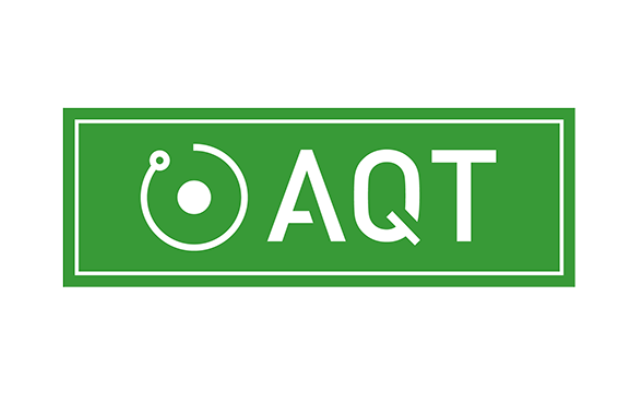

Alpine Quantum Technologies (AQT), a startup based in Innsbruck, Austria, has emerged as a significant player in the quantum computing landscape. Founded in 2018 by renowned quantum physicists Rainer Blatt, Peter Zoller, and Thomas Monz, AQT leverages decades of academic research in trapped-ion quantum computing to develop practical, scalable quantum systems.
At the core of AQT's approach is the use of trapped ions as qubits. This technology involves suspending individual ions in electromagnetic fields and manipulating them with lasers to perform quantum operations. Trapped-ion systems are known for their exceptional coherence times and high-fidelity quantum gates, making them a promising platform for building fault-tolerant quantum computers.
AQT's quantum processors are built on the foundation of calcium ions, which are trapped and controlled using sophisticated laser systems and ion traps. The company has developed proprietary technologies for ion trapping, laser control, and qubit manipulation, allowing them to achieve high-performance quantum operations. Their approach allows for all-to-all connectivity between qubits, a significant advantage over some other quantum computing architectures that have more limited qubit interactions.
One of AQT's key innovations is their scalable ion-trap chip, which integrates multiple ion traps on a single device. This design aims to overcome one of the primary challenges in trapped-ion quantum computing: scaling up to larger numbers of qubits while maintaining high coherence and gate fidelities. The company's roadmap includes plans for steadily increasing the number of qubits in their systems while improving overall system performance.
AQT has also made significant strides in developing the control systems necessary for operating their quantum processors. This includes advanced electronics for precise ion manipulation, software for quantum circuit compilation and execution, and cryogenic systems for maintaining the ultra-low temperatures required for optimal qubit performance. While trapped-ion systems generally operate at higher temperatures than superconducting qubit systems, maintaining a stable, cold environment is still crucial for minimizing noise and maximizing coherence times.
In terms of quantum software, AQT has developed a comprehensive software stack that allows users to program and run quantum algorithms on their hardware. This includes tools for quantum circuit design, optimization, and error mitigation. The company has also worked on implementing various quantum algorithms, demonstrating the capabilities of their systems in areas such as quantum chemistry simulations and optimization problems.
AQT's quantum computers are designed with a focus on modularity and scalability. Their systems are built to be compatible with standard 19-inch server racks, making them more easily integrable into existing data center infrastructures. This approach aims to make quantum computing more accessible and practical for a wide range of potential users, from academic researchers to industry partners.
The company has been actively involved in various quantum computing benchmarks and performance tests. They have demonstrated high-fidelity quantum operations and have participated in comparative studies of different quantum computing platforms. AQT's systems have shown promising results in terms of qubit coherence times, gate fidelities, and the ability to implement complex quantum circuits.
AQT is also engaged in developing quantum networking capabilities, leveraging the unique properties of trapped ions for quantum communication. This research could potentially lead to the development of quantum repeaters and other key components for future quantum internet infrastructures.
As the quantum computing field advances, AQT continues to push the boundaries of trapped-ion technology. They are working on improving qubit quality, increasing qubit counts, and enhancing the overall performance of their quantum processors. The company's goal is to develop practical, fault-tolerant quantum computers that can tackle real-world problems beyond the capabilities of classical systems.
AQT's progress in trapped-ion quantum computing represents a significant contribution to the diverse ecosystem of quantum technologies. As different qubit technologies continue to evolve, AQT's approach offers unique advantages in terms of qubit quality and connectivity. Their work, alongside that of other quantum computing companies, is helping to drive the field towards the realization of practical, large-scale quantum computers that could revolutionize fields such as cryptography, drug discovery, and complex system simulation.e your text here...
